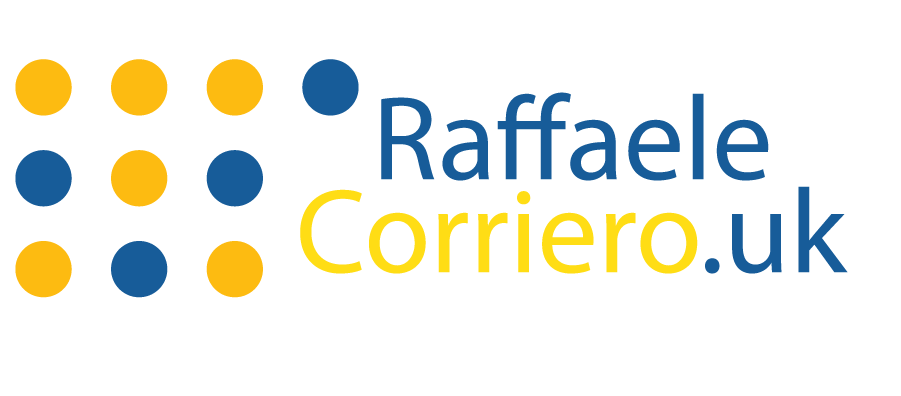Did you know that 93% of all online experiences start with a search engine? The digital world is changing fast, making it important to keep up with new SEO strategies. The SEO Checklist 2025 by Brian Dean is essential for increasing organic traffic for many brands.
This SEO roadmap for 2025 shares proven search engine optimisation tactics. It’s used for e-commerce sites, local businesses, and affiliate websites. It covers all you need about technical SEO, on-page SEO, and finding the right keywords.
It also gives advice on meta tags and how to structure your site. Following this guide will help your business stay ahead. You’ll match your SEO strategies with what search engines look for. This can increase your online visibility, bring more traffic, and lead to success online.
Key Takeaways
- 93% of online experiences begin with a search engine.
- The SEO Checklist 2025 is by Brian Dean, an expert in SEO.
- It talks about technical SEO, on-page SEO, and keywords.
- It suggests how to use meta tags and structure your site.
- It aims to improve visibility and traffic for different websites.
Introduction to SEO in 2025
SEO keeps changing, making it crucial to grasp the importance of on-page SEO for online success. Good on-page SEO improves user experience and meets search engine guidelines. This leads to better site rankings and more visitors.
In 2025, major SEO trends highlight the SEO importance in staying ahead of competitors. On-page SEO is key, merging smart content, keyword optimisation, and tech improvements.
Effective on-page SEO combines careful content planning with the latest tech. This approach is necessary in the fast-paced world of digital marketing evolution. It helps businesses lead the market and attract their audience.
SEO Basics for 2025
Understanding SEO tools is key for improving website performance. Starting a strong SEO plan in 2025 means using important tools. They give useful insights and help in tracking SEO.
Setting Up Google Search Console
Google Search Console is vital for any SEO plan. It helps site owners watch and keep up their site’s Google Search presence. By using Google Search Console, you learn how Google sees your site. It provides key data for your SEO work.
Using Bing Webmaster Tools
Bing Webmaster Tools are great for your SEO toolkit, despite fewer users than Google. They let you see how Bing interacts with your site. This means better SEO monitoring across different search engines.
Installing Google Analytics
Google Analytics is a must for knowing about your site traffic and how users behave. With Google Analytics, you get detailed data. This helps tweak your SEO strategies to be more effective.
Essential SEO Plugins
For WordPress users, SEO plugins like Yoast SEO make things easier. They handle the technical SEO bits for you. This means better SEO monitoring and insights automatically.
With these SEO tools, businesses can keep track of their SEO journey. This careful setup is crucial for a strong SEO strategy in 2025.
Keyword Research Strategies

Effective SEO starts with great keyword research. This process includes finding keywords, checking their difficulty, and targeting them in content. By doing so, businesses get important insights to improve their online presence.
Discovering Long-Tail Keywords
Long-tail keywords are vital for targeted content. They attract quality traffic with less competition. This makes them perfect for specialized topics.
Using Google Keyword Planner
Google Keyword Planner is key for keyword research. It gives detailed data to assess keyword difficulty. This makes choosing the right content for your audience easier.
Finding Keywords in Online Communities
Places like Reddit and Quora are great for finding keywords. SEO experts can see what people are talking about. This helps in creating content that meets users’ needs.
Identifying Low Competition Keywords with KWFinder
KWFinder helps find keywords with low competition. It focuses on niche terms. This boosts the chance of ranking high and targeting content effectively.
Using Answer The Public for Question Keywords
Answer The Public is great for finding question keywords. Focusing on these questions helps create relevant content. This can increase engagement and improve search rankings.
On-Page SEO Essentials
Implementing on-page SEO with precision is key to boosting your search rankings. Here’s a detailed guide on how to fine-tune your web pages effectively.
Including Keywords in URLs
Including primary keywords in your URL structure boosts page relevance. It helps search engines grasp what your page is about. Keep keywords in URLs short and aligned with your site’s URL setup.
Utilising Short URLs
Short URLs are preferred because they’re simpler to read and share. They usually rank better in search results, too. Aim for short, descriptive URLs that mirror your page’s content accurately.
Front-Loading Keywords in Titles
Putting keywords at the start of your titles boosts your SEO. This method makes sure search engines quickly see your content’s relevance to certain searches.
Embedding Title Tag Modifiers
Using modifiers like “best,” “guide,” “review,” and “top” in title tags can draw more clicks. It also helps with placing keywords better in search results.
Using Keywords in H1, H2, and H3 Tags
Adding relevant keywords to your header tags helps organise your content. It also enhances readability. This technique lets search engines understand your page’s structure and main ideas.
Optimising Images
Optimising your images is vital for complete on-page SEO. Make sure images have keyword-rich filenames and alt text. Also, making images load faster improves both user experience and SEO.
Using Synonyms and LSI Keywords
Adding synonyms and LSI keywords to your content avoids keyword stuffing. This method deepens your topic’s coverage. It increases your chance of ranking for related searches.
Adding Internal and External Links
A smart link strategy includes using both internal and external links. Internal links improve site navigation for users and search engines. External links to reliable sources boost your content’s trustworthiness and SEO strength.
Technical SEO Tips
Technical SEO makes sure your site works well and both search engines and people can use it. Here are some tips to make your site perform better and give users a great experience.
Identifying and Fixing Crawl Errors
Crawl errors stop search engines from indexing your site properly, affecting its crawlability. Use Google Search Console to find and fix these errors quickly. This makes sure your content is found and your site works best.
Ensuring SSL/HTTPS is Enabled
Using Secure Sockets Layer (SSL) and HTTPS is key for keeping your site safe and boosting SEO. It keeps threats away and makes visitors trust your site more. This improves their experience and helps your site rank better.
Setting Up a Preferred Domain
Choosing a preferred domain, ‘www’ or ‘non-www’, is key for a consistent site identity. It prevents problems with domain setup. This stops content from being duplicated, helping your site’s SEO.
Mobile Optimisation

Today, having a responsive website design is vital. More people are using mobiles to go online, so your website must work well on different devices. It should be easy to navigate and view content on, making sure users have a smooth experience no matter the device.
Mobile SEO is key to keeping up with Google’s mobile-first indexing. A site that’s mobile-friendly helps improve your search rankings. By choosing responsive design, you boost user experience and your website’s search engine performance.
Consider having simple menus, optimised images, and fast load times. These things keep visitors on your site longer and help your mobile SEO. They’re crucial for your website’s success.
Improving Page Speed
Page speed is now crucial for both user happiness and ranking well in searches. Faster websites please visitors, increase interactions, and boost SEO.
Utilising PageSpeed Insights
Google’s PageSpeed Insights tool checks web page performance and offers tips to get better. It helps find what needs fixing to speed up a site.
Compressing Images
Big images slow down websites. Making images smaller without losing quality speeds things up. Use TinyPNG or ImageOptim for great results.
Minifying Code
Minifying means taking out unneeded parts of HTML, CSS, and JavaScript. It makes websites load faster. Tools like UglifyJS and CSSNano help a lot.
Using Browser Caching
Browser caching saves data on a local computer. It makes sites load quicker on future visits. It cuts down on server requests, boosting speed.
Removing Render-Blocking JavaScript
Some JavaScript files stop other parts from loading quickly. If we delay or remove these files, websites load faster.
Limiting Redirects
Redirects create extra steps for loading a page. Fewer redirects mean faster sites. This helps improve page speed.
Using these methods well can make a website faster and more dependable. Both users and search engines will appreciate it.
Content Creation Strategies
In the world of SEO, making top-notch content that hits home with people is key. Putting together different kinds of content in a clever way helps meet what searchers are looking for. It caters to their many likes and needs.
Creating Consistent, High-Quality Content
Keeping up with great content keeps people coming back. It also builds trust. By focusing on important topics and updating regularly, brands can keep a strong online presence. Offering valuable content meets the audience’s needs, making them loyal and encouraging more visits.
Using a Variety of Content Formats
To attract more people, it’s vital to use various types of content. Using infographics, videos, and detailed articles suits different preferences. It makes the experience better for users. This mix helps in reaching more parts of your audience effectively.
Writing Content Targeted at Different Keywords
It’s important to aim at many keywords to catch a wider audience. Writing with a focus on keywords helps cover more topics. This way, your content shows up more in searches. It makes your content a go-to source in your field.
To wrap it up, combining good steady content, varied formats, and focus on keywords makes your marketing better. It helps you stand out in the fast-changing online world.
Local SEO Techniques

To make your business stand out locally, a smart Local SEO plan is needed. Making sure your online presence is strong in your area helps hit the right audience. In this piece, we share key steps to ace local search optimisation.
Creating and Optimising Your Google My Business Profile
It’s vital to set up a Google My Business profile for local attention. Make sure your profile has up-to-date info, like hours, contact details, and a website link. Add new photos and posts regularly to stay active.
Getting Reviews from Local Customers
Getting feedback from customers boosts trust and helps your local rank. Ask happy customers to share their thoughts on your Google My Business page. Replying quickly to all reviews shows you care and builds a devoted customer base.
Using Local Keywords in Your Content
Add local keywords to your website to show up in local searches. Use terms like “near me” or your city’s name in your texts. This approach makes your content staple for your area, drawing in local customers key for success.
Advanced SEO Tactics for 2025
In 2025, SEO will see big changes. Websites will use innovative SEO techniques to rank higher and engage more users. A key method will be smart schema markup. It helps search engines understand your content better. This means your site could show up more in search results.
Another important approach is strategic SEO planning. This includes smart content grouping. By organising similar content together, your site becomes easier to navigate. It also boosts your topic authority.
Advanced SEO will also lean on AI-driven analytics. These tools use machine learning to guess user behavior. They improve content and keywords, giving websites an edge online.
Optimising for voice search is also crucial. As voice-activated devices become popular, it’s important to match content with spoken queries. This makes sure you’re found in voice searches.
Using these enhanced optimisation methods not only helps with search rankings. It also greatly enhances how users interact with your website. This lays a strong base for online success in 2025 and the years to come.
Analysing SEO Performance
Do you want to know how well your SEO is doing? It’s all about looking at the numbers closely. You can find areas to get better and see where you’re doing great. Let me show you how.
Using Google Analytics to Track SEO Metrics
Google Analytics is great for checking different SEO details. It shows where your visitors come from and what they do on your site. You can see if your SEO investment is paying off by looking at these numbers.
Monitoring Keyword Rankings
Keeping an eye on your keyword rankings shows if you’re winning or losing in search results. It helps you know which keywords bring in visitors and which don’t. Adjusting your content based on this info leads to better outcomes.
Regular Website Audits
SEO audits are a must to spot technical problems and places your content could improve. They make sure your site follows the latest search engine rules. Doing audits often keeps your site in top shape for the competition.
Adding in-depth analytics, monitoring keywords, and doing regular audits makes your SEO strategy stronger. It clears the path for lasting online growth and success.
Link Building Strategies

A strong link profile is key to SEO and improving domain authority. Using various tactics is important for acquiring links. This boosts a site’s visibility in search engine results.
Creating Shareable Content
At the heart of getting links is quality content. Making engaging, shareable content helps draw in backlinks. Things like infographics, detailed guides, and interactive content work best for this.
Networking with Influencers
Working with influencers is great for getting quality backlinks. By teaming up with them, you can spread your content further. This improves chances for links and builds lasting relationships with influencers.
Guest Blogging
Writing guest posts on well-known sites is effective for getting links. It gets your content out there and creates chances for backlinks. This, in turn, raises your site’s authority.
Using Broken Link Building
Fixing broken links on other sites by offering your content is smart. It gives you quality backlinks and improves web experiences.
Adding these strategies to your SEO efforts boosts your site’s authority and online presence. A mix of content making, influencer networking, and smart link gathering leads to better search engine ranks.
Voice Search Optimisation
Voice-assisted devices like Amazon Echo and Google Home are changing how we use technology. To keep up, it’s vital to make sure we’re ready for voice search. This means using everyday language in search queries.
At the core of voice search optimisation is natural language processing (NLP). NLP helps search engines understand us better. We must make our content fit this tech. Responses should be clear and straight to the point.
When people use voice search, they usually ask questions. So, it’s important to give quick, clear answers. Using a conversational style makes your content fit voice searches well. Try to answer questions directly, like you’re chatting with someone.
By concentrating on natural language processing and voice searches, firms can really boost their online presence. This makes it easier for people to find and interact with them in a world that’s quickly changing.
SEO Checklist 2025
This list is key for SEO in 2025. It helps businesses make sure they are up-to-date with SEO trends and rules.
- Look closely at keywords to find the best ones for your area.
- Make sure keywords are in titles, headers, and descriptions.
- Improve how mobile-friendly your site is, and make sure it loads fast.
- Use tools like Google Search Console and Bing Webmaster Tools to check how your site is doing.
- Add SSL/HTTPS to make your site more trusted and rank better.
- Keep updating your content to stay relevant and authoritative.
- Build good links to improve your site’s authority and visibility.
By using this plan, you can make SEO strategies that last. This will boost your rankings and strengthen your online presence as digital world changes.
SEO Case Studies and Examples
Let’s look at real-world SEO wins to make the SEO checklist for 2025 clear. These examples show how different strategies boost search rankings, traffic, and online visibility. By seeing these methods in action, businesses can learn how to get similar results.
For instance, HubSpot used keyword research and on-page SEO to rank high for popular keywords. Their focus on content optimisation and SEO techniques increased their online visibility and engagement. This highlights the importance of following the best practices on the checklist.
Then there’s Brian Dean’s site, Backlinko, which grew by using advanced SEO tricks like skyscraper content. Dean’s smart use of keywords led to more traffic and better site authority. His success story is filled with tips on improving SEO.
These examples show that following the right SEO advice can really pay off. They offer insights for businesses looking to boost their SEO. With these success stories as a guide, companies can aim for big improvements in their SEO efforts.







